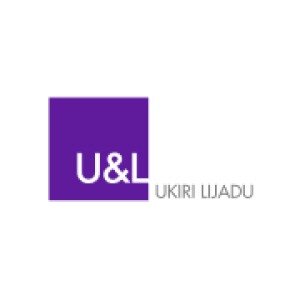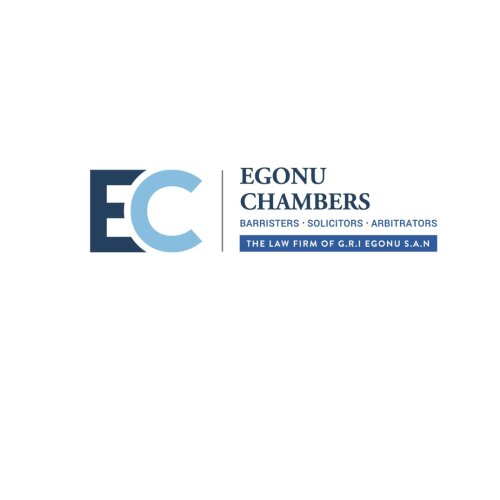Best Restructuring & Insolvency Lawyers in Maitama
Share your needs with us, get contacted by law firms.
Free. Takes 2 min.
List of the best lawyers in Maitama, Nigeria
About Restructuring and Insolvency Law in Maitama, Nigeria
Restructuring and insolvency law in Maitama, Nigeria, governs the processes for financially distressed businesses or individuals to reorganize their debts, liquidate assets, or otherwise resolve insolvency issues. Maitama, located in the Federal Capital Territory, is a prominent district where many corporate and high-net-worth individual matters converge. Here, restructuring typically refers to the legal and financial strategies used to modify the structure of a company’s debts and obligations to restore its viability. Insolvency law covers procedures for companies or individuals that are unable to meet their financial obligations, including both voluntary and compulsory winding up, receivership, business rescue, and debtor-creditor arrangements. Nigerian law provides avenues for these processes under statutes such as the Companies and Allied Matters Act (CAMA) 2020, the Bankruptcy Act, and various other regulations.
Why You May Need a Lawyer
Restructuring and insolvency matters often involve complex legal processes and substantial financial stakes. You may need a lawyer in any of the following common situations:
- Your business cannot meet its financial obligations or is at risk of collapse.
- You are a creditor seeking to recover debts from a struggling company or individual.
- You are considering voluntary liquidation, receivership, or other forms of restructuring.
- You have received a winding-up petition or bankruptcy notice.
- You need advice on restructuring agreements, debt rescheduling, or formal insolvency petitions.
- There are disputes between shareholders or directors concerning the management of assets during insolvency.
- You have personal guarantees or are at risk of personal insolvency as a business owner or director.
A specialist lawyer will navigate the available legal options, protect your interests, comply with statutory requirements, draft and review the necessary documents, and represent you in negotiations or court proceedings.
Local Laws Overview
Several key statutes and regulations apply to restructuring and insolvency in Maitama, Nigeria:
- Companies and Allied Matters Act (CAMA) 2020: Provides a comprehensive legal framework for insolvency, including winding-up, administration, receivership, and restructuring for companies registered in Nigeria.
- Bankruptcy Act: Governs personal insolvency for individuals, establishing grounds, procedures, and consequences for bankruptcy declarations, asset distributions, and discharge.
- Federal High Court (Civil Procedure) Rules: Regulates the court processes, including petitions for winding-up, restructuring applications, and creditor claims.
- Central Bank of Nigeria (CBN) Guidelines: Financial institutions in distress are regulated through CBN’s interventions and frameworks for rescue operations and bail-in or bail-out schemes.
Recent legal reforms have modernized insolvency practice in Nigeria, promoting business rescue and creditor protection, and encouraging fair distribution of assets. Court jurisdiction for corporate insolvency lies generally with the Federal High Court located in regions like Maitama within Abuja.
Frequently Asked Questions
What is the difference between restructuring and insolvency?
Restructuring is a process to reorganize a company’s financial structure to avoid insolvency, while insolvency is the state where an individual or company cannot pay their debts as they fall due.
Who can initiate insolvency proceedings in Maitama, Nigeria?
Insolvency proceedings can be initiated by the company itself (voluntary winding-up), creditors, or the Corporate Affairs Commission through a petition to the Federal High Court.
What assets are included in insolvency or bankruptcy proceedings?
All assets legally owned by the insolvent party can be included, except those exempted by law, such as certain personal items or assets held in trust for others.
How long does insolvency or restructuring take in Nigeria?
The duration varies, depending on the complexity of the case, volume of assets and liabilities, and whether disputes arise. Simple matters might take a few months, while complex reorganizations can last over a year.
What role do creditors play in insolvency proceedings?
Creditors can petition for insolvency, vote on restructuring proposals, and submit claims to receive distributions from the insolvent party’s assets.
Can individuals file for bankruptcy in Nigeria?
Yes, individuals can file for bankruptcy under the Bankruptcy Act, subject to specific legal grounds and procedural requirements.
Is business rescue available under Nigerian law?
Yes, business rescue and administration are recognized under CAMA 2020, allowing companies to reorganize while being protected from creditor actions.
What happens to employees during restructuring or insolvency?
Employees are considered preferential creditors, meaning their claims for salaries and benefits typically have priority in asset distributions.
What are the legal consequences of bankruptcy for individuals?
Individuals declared bankrupt may lose their assets, face restrictions on credit and business activities, and their names may appear on public bankruptcy registers.
Do foreign creditors have rights in Nigerian insolvency proceedings?
Yes, foreign creditors can participate and submit claims, although Nigerian law and courts have jurisdiction over the proceedings and asset distributions.
Additional Resources
Here are some key resources and organizations that may assist you with restructuring and insolvency matters in Maitama, Nigeria:
- Corporate Affairs Commission (CAC): Responsible for the registration of companies and administration of insolvency procedures.
- Federal High Court, Maitama Abuja: Handles all petitions and cases related to insolvency and restructuring.
- Insolvency and Restructuring Committee of the Nigerian Bar Association: Provides up-to-date information and professional contacts for insolvency law issues.
- Central Bank of Nigeria (CBN): For insolvency issues involving banks and licensed financial institutions.
- Nigerian Financial Intelligence Unit (NFIU): Offers oversight and support in complex financial or fraud-related insolvency matters.
Next Steps
If you believe you need legal assistance with restructuring or insolvency in Maitama, Nigeria, you should take the following steps:
- Gather all relevant financial documents, contracts, and correspondence.
- Make a list of assets, liabilities, creditors, and ongoing lawsuits or disputes.
- Seek out a lawyer with experience in restructuring and insolvency in Maitama. You can contact the Nigerian Bar Association or visit reputable firms in the area.
- Request an initial consultation to discuss your situation, options, and the best course of action.
- Act promptly, as delays can worsen the situation or limit your available options.
By following these steps and engaging professional legal counsel, you will be better equipped to manage the financial and legal complexities of restructuring or insolvency, protect your rights, and work towards a positive resolution.
Lawzana helps you find the best lawyers and law firms in Maitama through a curated and pre-screened list of qualified legal professionals. Our platform offers rankings and detailed profiles of attorneys and law firms, allowing you to compare based on practice areas, including Restructuring & Insolvency, experience, and client feedback.
Each profile includes a description of the firm's areas of practice, client reviews, team members and partners, year of establishment, spoken languages, office locations, contact information, social media presence, and any published articles or resources. Most firms on our platform speak English and are experienced in both local and international legal matters.
Get a quote from top-rated law firms in Maitama, Nigeria — quickly, securely, and without unnecessary hassle.
Disclaimer:
The information provided on this page is for general informational purposes only and does not constitute legal advice. While we strive to ensure the accuracy and relevance of the content, legal information may change over time, and interpretations of the law can vary. You should always consult with a qualified legal professional for advice specific to your situation.
We disclaim all liability for actions taken or not taken based on the content of this page. If you believe any information is incorrect or outdated, please contact us, and we will review and update it where appropriate.









